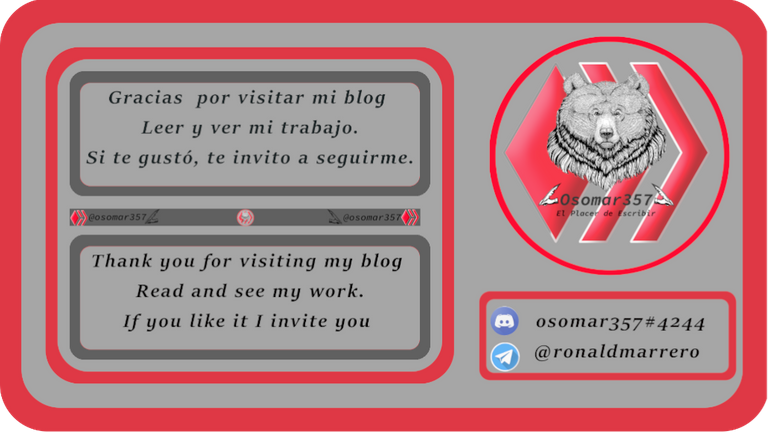

Pornt: ¿Cuál es el significado de esto?
Hace pocos días le comentaba a @albert0607, en un post que escribió, sobre los cambios y las mejoras, en el uso de #Linux, que yo, empecé a usarlo en el año 2004, y eso, debido a que con Windows, había perdido una tesis en la universidad. También le comenté que, a diferencia de otros usuarios, yo inicié en #Linux, con una distribución llamada OpenSuse.
Yo recuerdo, que cuando decidí cambiar a #Linux, vi cambios brutales, en referencia con lo que uno estaba acostumbrado en Windows. Uno de ellos, era que para instalar el sistema operativo de OpenSuse, tuve que usar cerca de 6 cd, ya que en esa época, si mal no recuerdo, no existía el DVD.
También recuerdo mucho que, cuando abrí el escritorio por primera vez, me sentía total y absolutamente perdido, me sentía inseguro y con algo de temor, ya que me sentía totalmente perdido y, a cada rato, me preguntaba a mí mismo: ¿Cuál es el significado de esto?, ¿Para qué sirve esto?, ¿Cómo realizó esto o aquello? Además, no podía conseguir ayuda en internet, ya que en ese momento no tenía internet en casa, así que todo lo que usaba, lo bajaba a una memoria en la universidad o en un Cibercafé.
De verdad estaba muy perdido, y no sabía ni cómo iniciar los procesos más básicos. Hasta estuve a punto de eliminar el sistema operativo el mismo día que lo instalé. Pero dos situaciones, me hicieron cambiar de idea: la primera fue, ver a una señora mayor, trabajando en Ubuntu en la universidad, y cuando me puse a conversar con ella, le pregunté sobre varias dudas y me las respondió todas. Y cuando le pregunté, ¿dónde había aprendido? Ella me dijo, que lo había hecho sola, leyendo y participando en foros y viendo videos en algunos cd que había comprado. Ya que Youtube, no había nacido aún en el 2004.
Y la segunda situación, fue que coloqué internet en mi casa, y pude participar activamente en los foros de OpenSuse. Recuerdo, que cuando llegué al foro oficial, llegué quejándome y preguntaba constantemente: ¿Cuál es el significado de esto o aquello? Y la respuesta fue muy simple. Primero, sigue las reglas. Y las reglas eran simples: la primera saluda, la segunda escribe sin errores ortográficos, la tercera, lee e investiga en el foro y en sus temas ya escritos antes de venir a preguntar sobre respuestas ya dadas.
Así que decidí, romper mi zona de confort y me dediqué a estudiar y a investigar, y así aprendí, poco a poco, a usar #Linux, y ya tengo más de 20 como usuario de este hermoso y grandioso sistema operativo, y muchas veces ahora, yo, le doy respuesta a los nuevos usuarios cuando preguntan: ¿Cuál es el significado de esto?
Muchas gracias por leerme.
Si quieres participar en este contenido puedes hacerlo aquí
Invito a participar a: @esbat, @alicia2022, @nahueldare3627.


To Read in English


5-minute daily prompt: What is the Meaning of This? Discovering Linux Step by Step. Original Content.
Pornt: What is the meaning of this?
A few days ago I told @albert0607, in a post he wrote, about the changes and improvements, in the use of #Linux, that I, started using it in 2004, and that, because with Windows, I had lost a thesis at university. I also told him that, unlike other users, I started on #Linux, with a distribution called openSUSE.
I remember, that when I decided to switch to #Linux, I saw brutal changes, in reference to what one was used to in Windows. One of them was that to install the openSUSE operating system, I had to use about 6 CDs, since at that time, if I remember correctly, there was no DVD.
I also remember a lot that, when I opened the desk for the first time, I felt totally and absolutely lost, I felt insecure and with some fear, because I felt totally lost and, every now and then, I asked myself: What is the meaning of this? What's the point of this? How did you do this or that? In addition, I couldn't get help on the internet, since I didn't have internet at home at that time, so everything I used, I downloaded to a memory stick at university or in an Internet Cafe.
I was really lost, and I didn't even know how to start the most basic processes. I even came close to deleting the operating system the same day I installed it. But two situations, made me change my mind: the first was, I saw an older lady, working on Ubuntu at university, and when I started talking to her, I asked her about several doubts and she answered them all. And when I asked him, where had he learned? She told me, that she had done it alone, reading and participating in forums and watching videos on some CDs she had bought. YouTube wasn't even born in 2004.
And the second situation was that I placed the internet in my house, and I was able to actively participate in the openSUSE forums. I remember, when I came to the official forum, I came complaining and constantly asking: What is the meaning of this or that? And the answer was very simple. First, follow the rules. And the rules were simple: the first one greets, the second one writes without spelling mistakes, the third one reads and researches the forum and its already written topics before coming to ask about already given answers.
So I decided to break my comfort zone and dedicated myself to studying and researching, and so I learned, little by little, to use #Linux, and I already have more than 20 as a user of this beautiful and great operating system, and many times now, I give answers to new users when they ask: What is the meaning of this?
Thank you very much for reading me.
If you want to participate in this content you can do it aquí
I invite to participate to: @esbat, @alicia2022, @nahueldare3627.



